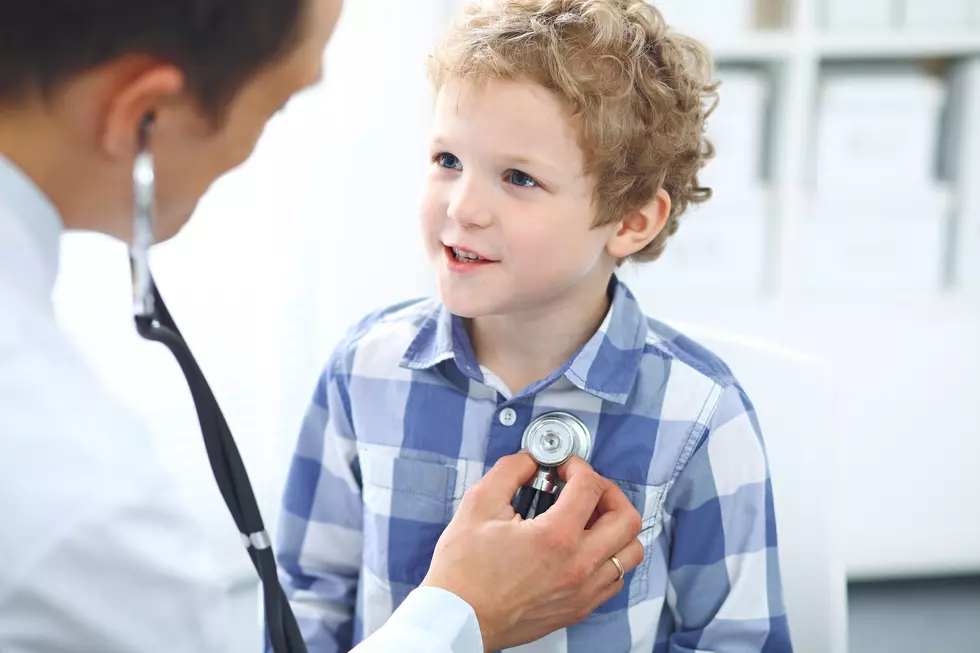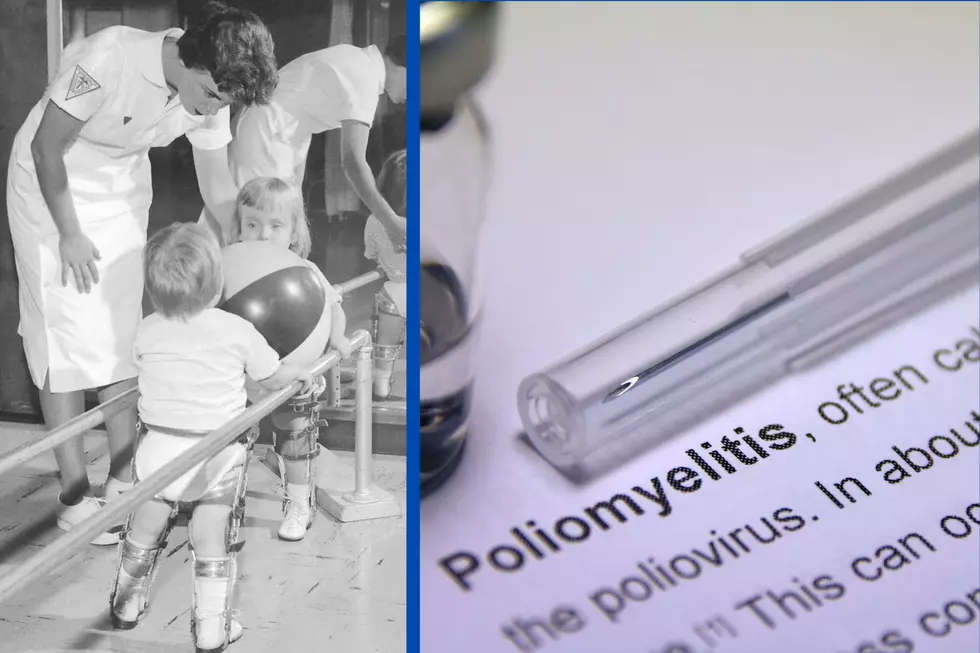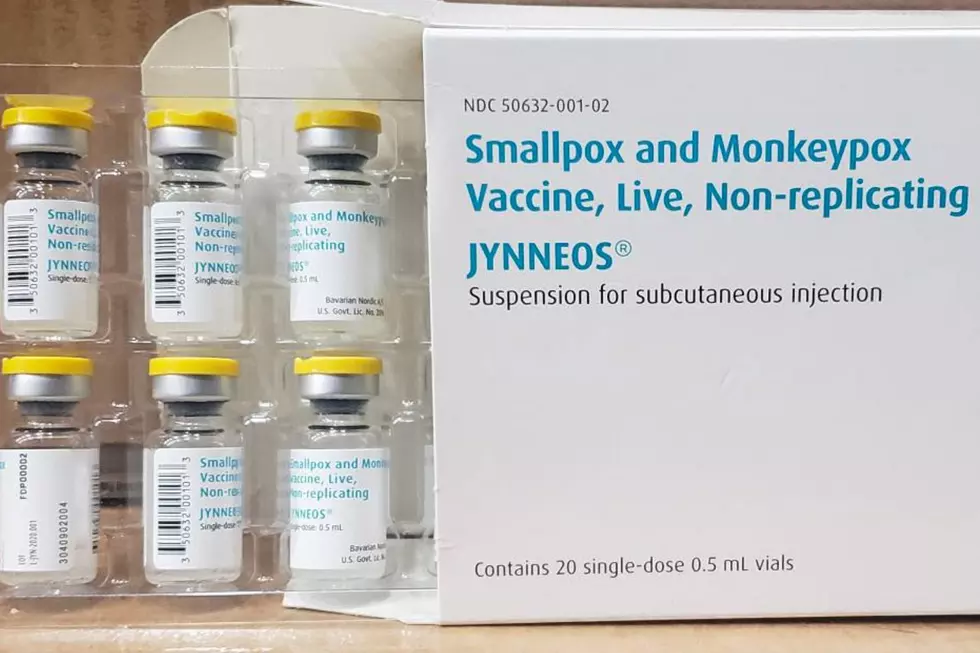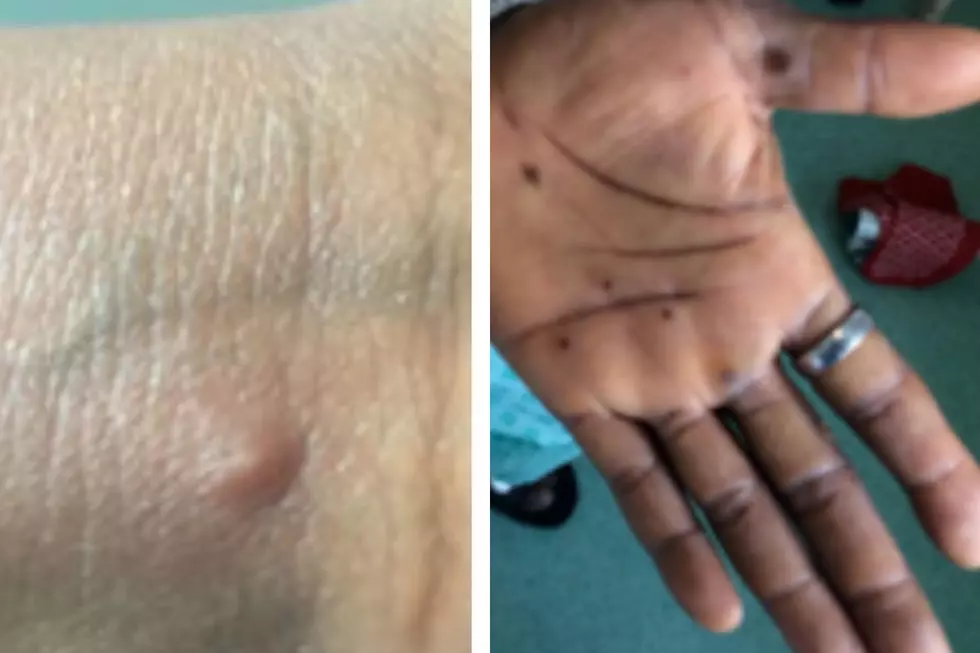
Child patients hospitalized with virus: NJ mom urges caution
Families are being told to stay aware as health officials monitor an uptick in young patients hospitalized with severe respiratory illness, who tested positive for rhinovirus, enterovirus — or both.
There are more than 100 types of rhinoviruses and enteroviruses that can infect people, and about half of all common colds are caused by some kind of rhinovirus.
Starting in August, healthcare providers and hospitals in several regions have shared such information with the Centers for Disease Control and Prevention.
Rhinovirus and enterovirus scare in New Jersey
At least one New Jersey family has gone public with their own such experience.
Kelley O’Neill, of Metuchen, said her 3-year-old son was hospitalized and put on oxygen after testing positive for both rhinovirus and enterovirus.
O’Neill first shared her story with Fox 29 Philadelphia. She confirmed to New Jersey 101.5 on Thursday that her son has been doing much better, but that parents should be vigilant.
CDC health alert concerning children
Last week, the CDC issued a health alert, in which they said that some samples in these cases have tested positive for enterovirus D68 (EV-D68) — which caused a nationwide outbreak of respiratory illness in 2014.
O’Neill said they still do not know if that was the specific enterovirus her son had been ill with.
After she shared her own experience, at least one other New Jersey family O'Neill is friends with took their child for treatment — resulting in hospitalization, as well. That child was discharged on Thursday, O'Neill said.
Symptoms and cases
In some of the most severe cases nationwide, there has been limb weakness among symptoms — similar to those seen in polio patients.
While EV-D68 still primarily causes acute respiratory illness, it has been associated with acute flaccid myelitis (AFM) — the medical term for a rare but serious neurologic complication involving limb weakness.
As of Wednesday, there had been 14 confirmed AFM cases this year in nine other states, according to the CDC — with no cases AFM in New Jersey, so far.
Guardians should seek immediate medical attention for a child developing any of the following symptoms, especially following a respiratory illness:
— Arm or leg weakness
— Pain in the neck, back, arms, or legs
— Difficulty swallowing or slurred speech
— Difficulty moving the eyes or drooping eyelids
— Facial droop or weakness
A LINCS message was issued Thursday for NJ healthcare providers to increase provider awareness of rhinovirus and enterovirus, recommend testing, appropriate isolation, to report suspected outbreaks to their local health department and to be aware of acute flaccid myelitis as well, a state health department spokesperson confirmed to New Jersey 101.5.
How common are these viruses?
Enteroviruses and rhinoviruses are both very common viruses. Most infections involve no symptoms or just mild symptoms — though some infections can be serious, especially among infants and patients with weakened immune systems.
Enterovirus infections can in some cases cause coxsackievirus or "hand, foot, and mouth disease," viral meningitis and viral conjunctivitis.
There are no available vaccines or specific treatments for either enteroviruses or rhinoviruses, including EV-D68.
After the outbreak eight years ago, awareness of EV-D68-linked illness was heightened and surveillance for it has expanded.
Overall, infants, children and teenagers are most likely to get infected with enteroviruses and become ill, according to the CDC. Adults can get infected, but they are more likely to have no symptoms or mild symptoms.
Children with asthma may have a higher risk for severe respiratory illness caused by EV-D68 infection.
How to diagnose
Many hospitals and some doctor’s offices can test for enterovirus infection. However, determining the type, such as whether it is EV-D68, is done by specific, PCR-style testing on samples from throat or nasal swab or blood.
Federal health officials have said that the lower number of positive cases for this group of viruses in 2020 might have been linked to wider precautions against infection due to the COVID-19 pandemic.
Similarly, many of the same preventative methods are recommended for reducing the spread of enteroviruses — including frequent hand washing, covering coughs and sneezes, cleaning and disinfecting frequently touched surfaces and staying home when sick.
Erin Vogt is a reporter and anchor for New Jersey 101.5. You can reach her at erin.vogt@townsquaremedia.com
Click here to contact an editor about feedback or a correction for this story.
LOOK: Baby names that are illegal around the world
NJ Diners that are open 24/7
LOOK: What are the odds that these 50 totally random events will happen to you?
Netflix’s Most Popular English-Language TV Shows Ever
KEEP READING: Scroll to see what the big headlines were the year you were born
More From Beach Radio










